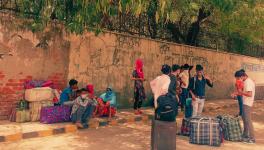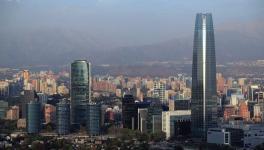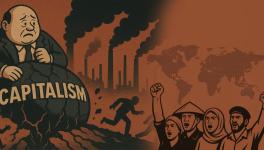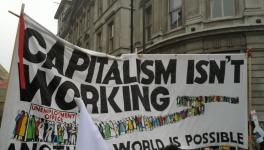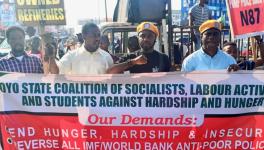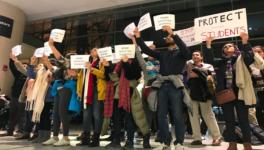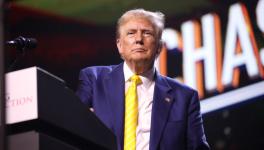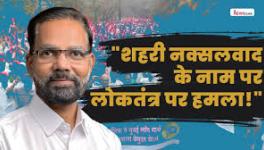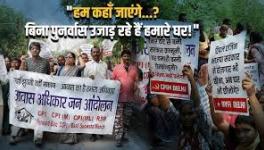The Monsters of the Global Crisis Interregnum
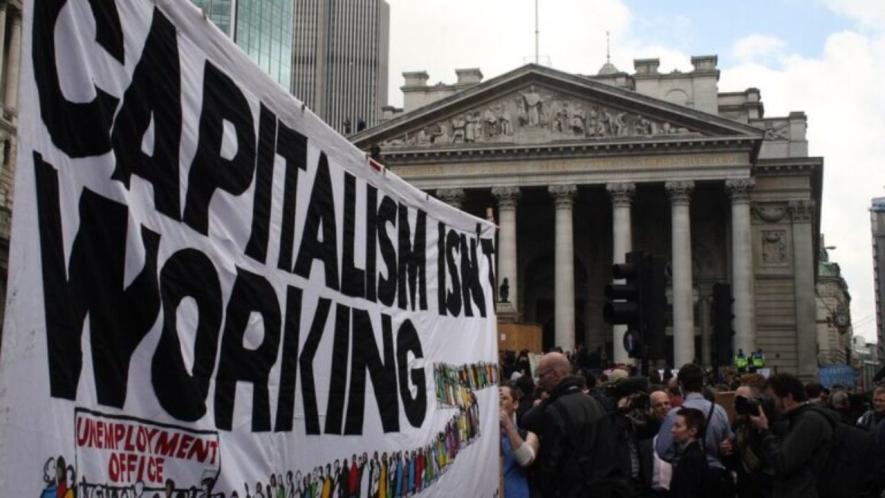
Protesta por la crisis del G20 en Londres en abril de 2009. Foto: Wiki commons
Lee en español aquí
The famous quote by Italian Marxist philosopher Antonio Gramsci seems to have been written for the moment humanity is currently experiencing: “The old is dying, and the new cannot be born. In this interregnum, monsters arise.”
The world is going through a civilizational crisis in which the neoliberal capitalist order, although mortally wounded, continues to impose its predatory logic, that of the use of force and the resurgence of fascism, while emancipatory alternatives fail to consolidate. In this vacuum, monsters proliferate: wars and attempts at recolonization, climate crisis, structural hunger, collapse of multilateralism and international law placed at the service of the world’s powers that be.
Capitalism and its “terminal crisis”
According to Brazilian theologian Leonardo Boff, the globalized capitalist system has been showing terminal signs for more than a decade: the obscene concentration of wealth, parasitic financialization, planetary catastrophes, and the precariousness of life have led to this crisis, but it has not been strong enough to finally bury this system. Western imperialism – today embodied in NATO and its imposition of increased war budgets on member countries, in the US economic war, especially against China, and in the European Union’s sanctions against Russia – can no longer flaunt itself as before, but it refuses to die. Its decline is evident in global inflation, the return of Cold War geopolitics, and the rise of neo-fascisms as fictitious “solutions” to inequality.
Is the left also in crisis?
While capitalism seems to be moving towards its decomposition, the left is unable to articulate a hegemonic project. Progressive experiences in Latin America face economic siege, blockades, unilateral coercive measures and judicialization, divisions and popular demobilization; European social democracy is surrendering to neoliberalism and anti-capitalist alternatives still lack global strength. Fragmentation and what appears to be a lack of strategies in the face of new forms of domination (such as the digital divide, corporatist government, and the rule of Big Tech) weaken the possibility of the emergence of a new order.
The monsters of the “interregnum”
In this historical limbo, crises are multiplying:
Wars and neocolonialism: Ukraine, Palestine, Sudan, the Sahel, conflicts where resources are plundered under the rhetoric of “defending democracy” or simply betting on chaos and the disappearance of states.
Environmental catastrophe: Capitalism has turned nature into a “commodity,” and now the planet is suffering countless fires, floods, and desertification.
Hunger and inequality: The 1% owns more than the 99%, while the UN reports that 735 million people suffer from chronic hunger, billionaires break records in profits and gain support from media corporations and politicians.
The failure of international law: The International Criminal Court prosecutes Africans but ignores the crimes of Israel and the US, while the Security Council has become a veto club. Furthermore, reform of the United Nations has become a key issue for the Global South, as seen at the last BRICS meeting in Rio de Janeiro, Brazil.
Criminalization of migrants: In the first six months of his second term, President Donald Trump has launched a strong public campaign against the presence of migrants, especially Latin Americans, in the United States. This campaign has also been the basis for an aggressive anti-immigration policy that ranges from the revocation of programs such as Humanitarian Parole, the cancellation of Temporary Protected Status (TPS), mass deportations, family separation, and the removal of infants from their parents, to the establishment of a highly sophisticated international prison system that violates human rights.
However, this policy is not exclusive, nor was it initiated by the Trump administration, as noted in the testimony of Gladys Caricote, one of the Venezuelan women deported from the United States to Venezuela. In her testimony, she details the discriminatory policy of US governments after being held in an immigration detention center (ICE) for more than 10 months, which means that it was under the administration of Joe Biden, the 46th President of the United States (Democratic Party, 2021-2025), when this restrictive policy towards migrants from Venezuela was tightened.
Is there a way out?
What is needed to build alternatives? How can the Global South help? Is there any point in creating new forms of democracy, popular organization, and class internationalism?
The BRICS summit held in Rio de Janeiro, Brazil, on July 6 and 7 was a key event, as it represented a counterweight to the Western-dominated economic and political order, Similarly, its progressive expansion (in 2023-2024, the BRICS accepted new members such as Egypt, Ethiopia, Iran, Saudi Arabia, and the United Arab Emirates), despite differing criteria among member countries on this issue, has meant greater representation for the Global South, even if it is not without tensions, such as Brazil’s opposition to Venezuela’s entry.
This summit, which issued a 126-point declaration, was quickly responded to by President Donald Trump, who described the proposal to de-dollarize the group’s economic transactions, promoting payments in local currencies and mechanisms such as the New Development Bank (NDB), as a threat to the United States and threatened to increase tariffs on countries that support this action.
Another important event, highlighted in the final declaration of this meeting, was the session of the Civil Council, which the movements present in Brazil have called the “BRICS People’s Council,” promoted at last year’s meeting in Kazan, Russia, as a Civil Forum, even though it is not institutionalized in any instance of the political bloc. However, the potential of this Council, not only for the BRICS countries themselves, but also for our countries in the South, is summed up in the reading of the Council’s consensus statement by João Pedro Stedile, of the National Coordination of the Landless Rural Workers’ Movement (MST) and the Political Coordination of ALBA Movements, who summarized that “the formal participation of the People’s Council is historic because it consolidates a method. Everyone agrees that the problems facing the peoples will not be solved by government initiatives alone.” However, everyone seems to be clear that it will not be an easy process, given that the rotating presidencies of the group determine the approaches.
Next year, the presidency will go to India, which may have a different view of the role of popular organizations in BRICS, but the important thing is that it is already a decision of the popular organizations to accompany this geopolitical instance as an alternative to the crises already raised, this being another way in which popular movements and organizations are standing up to the monsters that have emerged at this stage, as they have also done with mass actions against the attacks on Iran, Israel’s extreme violence in Gaza and throughout Palestine, the kidnapping of migrants, in defense of the sovereignty of the Sahel countries, etc.
Carmen Navas Reyes is a Venezuelan political scientist with a master’s degree in Ecology for Human Development (UNESR). She is currently pursuing a doctorate in Latin American Studies at the Fundación Centro de Estudios Latinoamericanos Rómulo Gallegos CELARG in Venezuela. She is a member of the International Advisory Council of the Tricontinental Institute for Social Research.
This article was produced by Globetrotter.
Courtesy: Peoples Dispatch
Get the latest reports & analysis with people's perspective on Protests, movements & deep analytical videos, discussions of the current affairs in your Telegram app. Subscribe to NewsClick's Telegram channel & get Real-Time updates on stories, as they get published on our website.









